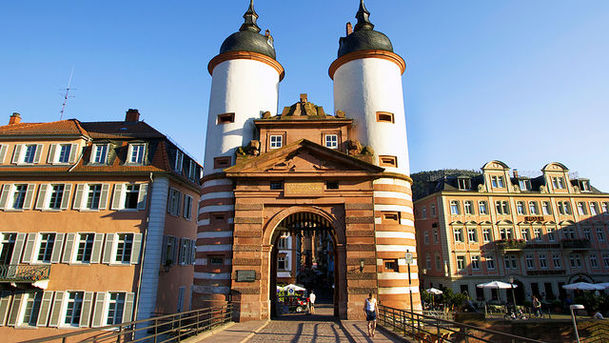The Romantic Road: On the Trail of the German Philosophers - Doppelgänger

Writer Stephen Plaice takes a journey through the German cities where the great philosophers of the 19th century lived and worked, exploring the impact that these thinkers have had on each stage of his life. Along the way, he reflects on the Germany which has been locked away behind the two World Wars, and examines our contemporary prejudices towards Germans. Together with his brother Neville, an expert on the romantic city of Heidelberg, Stephen explores the city of the Student Prince and examines its connections with the philosophers Hegel and Schopenhauer. He considers the idea of the Doppelgänger, the double, an important archetype in German Romantic literature. Neville explains how the movement of High Romanticism was created by the anti-French nationalism, which developed in the city during the years after the Napoleonic invasion. The enthusiasm for German folklore, which was later fostered by the Nazis, was directly related to this cultural reaction. Stephen discusses with his brother two of the famous philosophers associated with the city, Hegel and Schopenhauer. Hegel went on to become an intellectual superstar, taking over the chair of philosophy in Berlin. Schopenhauer, on the other hand, was dismissed by the academic establishment, his ideas only latterly being taken seriously by the likes of Richard Wagner and Friedrich Nietzsche. Schopenhauer attempted to emulate Hegel, and became a kind of Doppelgänger for him when he followed in his footsteps to Berlin and set up his own rival series of lectures. These were so poorly attended however, he had to beat an ignominious retreat from the capital.